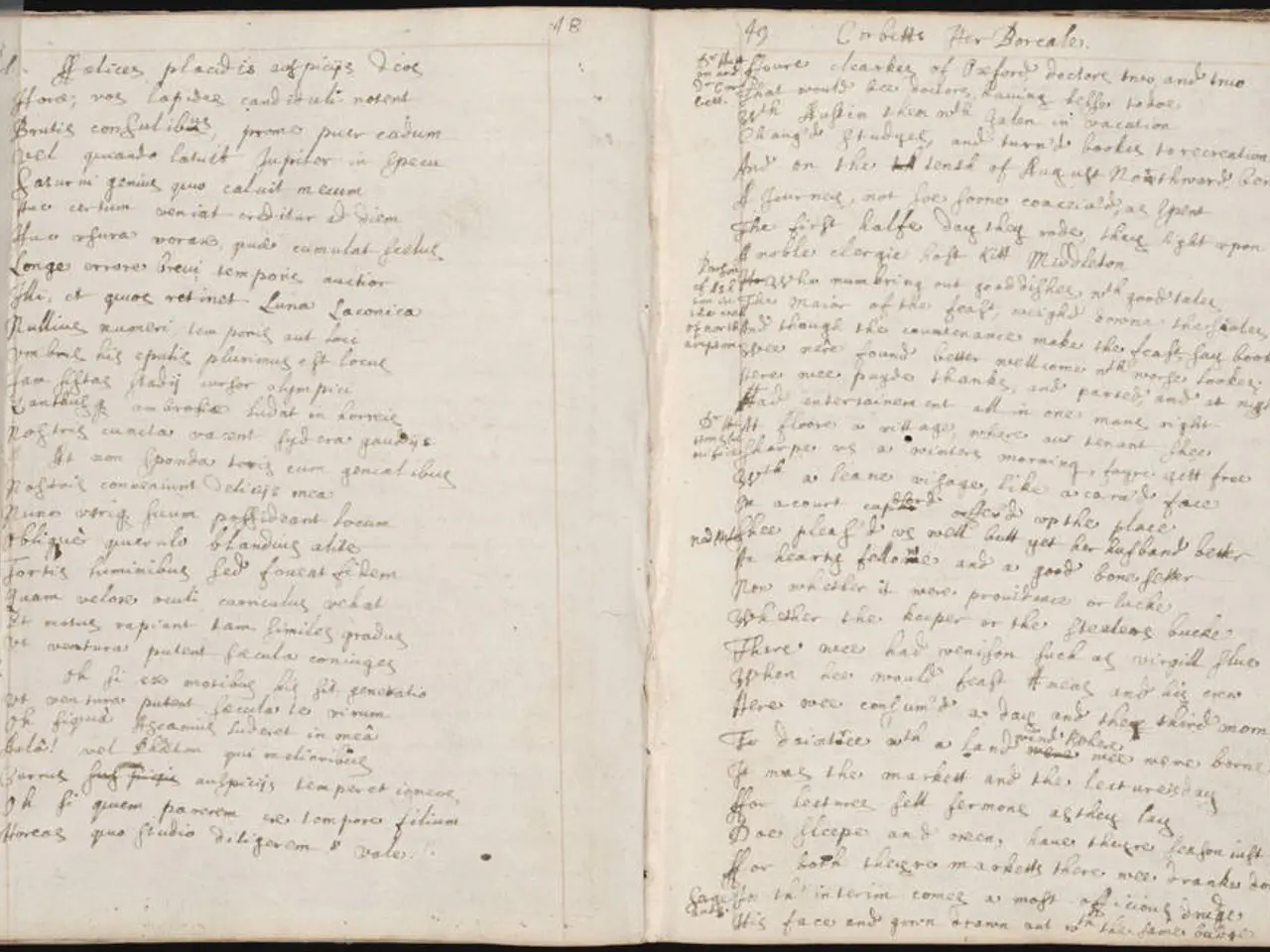Questioning the Continued Relevance of Kipling's 'Imperialist' Literature Today
In the picturesque countryside of southern Vermont lies the former residence of a writer whose work has been both celebrated and criticised for over a century. Rudyard Kipling, the author of renowned works such as "The Jungle Book" and "Kim", is a figure whose legacy continues to spark debate.
Recently, journalist Steve Paulson sat down with literary scholar Chris Benfey and author Salman Rushdie to discuss Kipling's controversial political views and the impact they have on his work. The conversation centred around Kipling's poem "The White Man's Burden", a significant work in the history of imperialism that called for the U.S. to seize control of the Philippines.
"The White Man's Burden", written in 1899, was a reflection of Kipling's imperialist beliefs and a call to action for imperialism. The poem was also a voice for imperialist sentiments, giving expression to the ideology that justified colonial domination. This controversial piece has been widely criticised for promoting racist and colonialist attitudes.
However, literary scholars and authors hold diverse perspectives on Kipling’s legacy. Some view his works as valuable historical artifacts that reflect the attitudes and complexities of late Victorian imperial Britain, making them important for critical study rather than uncritical celebration. Kipling’s literary craft and narrative power are often acknowledged even by critics of his politics.
Authors like Salman Rushdie have spoken about Kipling’s legacy with nuance. Rushdie has recognised Kipling's storytelling mastery but also critically addressed the problematic imperialist ideology underpinning parts of his work. This dual view highlights an ongoing tension: appreciating Kipling’s literary contributions while critically engaging with his political and racial perspectives.
In summary, while Kipling’s controversial views complicate his legacy, many scholars advocate reading his works within their historical context and with critical awareness rather than outright dismissal. This approach allows readers to understand the cultural and political forces shaping his writing and encourages reflection on imperialism’s enduring impacts.
This balanced perspective reflects the predominant scholarly and literary discourse on Kipling’s continued relevance and challenges. As we continue to grapple with the complexities of Kipling's work, it is essential to maintain a nuanced understanding of his literary merit and the problematic political ideologies he espoused.
Key points:
- Kipling’s "The White Man’s Burden" is widely criticized for promoting imperialist and racist ideas that justify colonial domination.
- Literary scholarship uses Kipling’s works to study Victorian imperial attitudes and their cultural consequences, emphasizing critical engagement rather than rejection.
- Influential authors like Salman Rushdie acknowledge both Kipling’s literary skills and the problematic nature of his imperialist ideology.
- Current relevance lies in balancing Kipling's literary merit with a critical understanding of his political context and its implications.
Books on scientific discourse and general news might delve into the ongoing debate about Rudyard Kipling's legacy, exploring his controversial political views and their impact on his work, as well as the nuanced viewpoints of literary scholars and authors like Salman Rushdie. Entertainment programs could also feature roundtable discussions with historians, discussing Kipling’s imperialist poem "The White Man's Burden" and its significance in the history of imperialism. Meanwhile, political commentators might analyze how Kipling's work reflects and contributes to persisting racial and colonialist issues, ultimately creating a fascinating intersection of diverse subjects.








